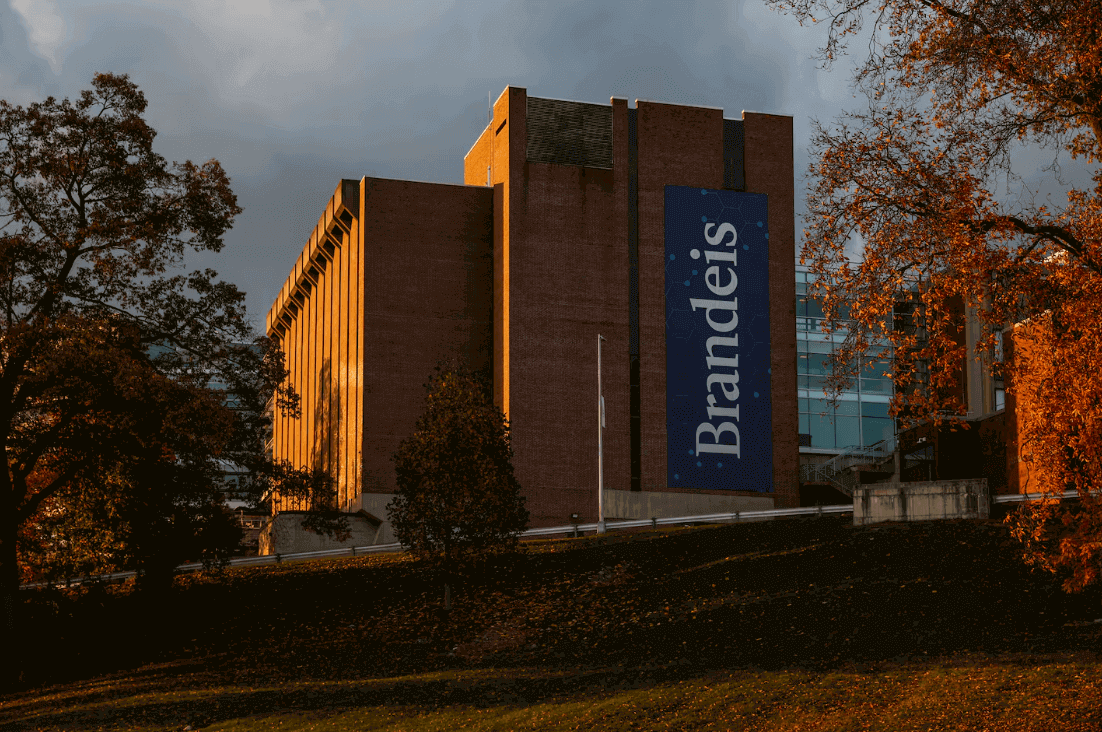高等教育领导者担心,由于拘留和研究经费削减,国际学生将停止来美

【中美创新时报2025 年 3 月 28 日编译讯】(记者温友平编译)高等教育领导人担心特朗普政府政策的后果可能威胁到该国作为国际学生首选目的地的地位,从而导致抵制,在许多学校已经陷入财务困境的时候,这将打击他们的财务和校园文化。《波士顿环球报》记者希拉里·伯恩斯和卡米洛·丰塞卡对此作了下述报道。
科学研究经费毫无预警地被取消。大学正在裁员、关闭实验室并削减预算。现在联邦特工正试图驱逐那些表达对巴勒斯坦人支持的国际学生,这进一步危及高等教育机构招募和留住来自世界各地的优秀学生的能力。
“许多人不愿意来美国接受教育,因为他们意识到,如果他们来这里,基本上他们在这里的时间里都会被人扔石头,”塔夫茨大学 18 岁的新生夸梅·阿萨雷 (Kwame Asare) 说,他来自加纳,拥有美国国籍。“即使他们对经济或美国的整体伟大做出了贡献,他们仍然会被视为不属于这里的人。”
在波士顿地区等高校云集的环境中,外国学生是资金和智力的重要来源;仅在麻省理工学院,40% 的研究生都是持其他国家的学生签证来此学习的。
而且,由于外国学生不符合联邦财政援助的资格,他们通常要支付全额学费,在学费高昂、学校面临向美国学生提供更多财政援助的压力之际,外国学生是学校的重要收入来源。因此,即使是外国学生入学人数的小幅下降也会对一些学校造成毁灭性的打击,加剧了特朗普政府削减联邦研究经费和大幅增加捐赠基金收入税的提议给学校造成的财务损失。
特朗普对高等教育的打压可能会阻碍国际学生入学。这些新英格兰学校可能会受到重创。
根据美国商务部的数据,国际学生约占美国大学生总数的 6%,2023 年为美国经济贡献了 500 多亿美元。其中约有一半学习 STEM 相关领域。
马萨诸塞州因其高等教育行业的实力,在该行业中占有相当大的份额;根据国际教育交流组织的数据,超过 82,000 名外国学生在该州的校园学习,为该州的经济贡献了近 40 亿美元。国际教育交流组织是一家总部位于华盛顿特区的组织,自 1919 年以来每年都会对美国的国际学生进行普查。
布兰迪斯大学、哈佛大学、波士顿大学和东北大学的外国学生分别占总入学人数的 25%、27%、29% 和 38%。
虽然2029届新生的招生工作大部分是在特朗普总统上任之前进行的,但教授和管理人员担心吸引学生来这里会变得更加困难,一些国际学生,特别是有抱负的科学家,可能会选择在秋季到其他国家学习。
密歇根州立大学教育学教授布伦丹·坎特韦尔说:“全面灾难的情景确实摆在眼前。那里的财政压力很大。我担心是否有能力进行讨论,以及与世界各地的人们学习。”
根据 IEE 的数据,在特朗普第一任期内,2016 年至 2019 年期间新生入学人数下降了约 8%,这主要是由于联邦政府的签证限制和加强筛选流程。
此外,最近逮捕和拘留了数名国际学生和至少一名教职员工,这代表着新的风险。周二被从萨默维尔街头带走的塔夫茨大学研究生鲁梅萨·奥兹图尔克 (Rumeysa Ozturk) 在法官介入之前被联邦移民局特工送往路易斯安那州。
华盛顿特区独立学院理事会主席玛乔丽·哈斯表示:“目前最大的威胁是,家长们对子女在美国是否安全失去信心,不再相信他们的孩子会受到任意搜查和扣押、驱逐出境和边境拦截。”
围绕联邦研究资金的不确定性已经对大学财政产生了影响,这本身就可能成为外国学者的另一个障碍。在特朗普早些时候削减数十亿美元联邦资金后,马萨诸塞大学医学院最近撤回了数十名博士候选人的录取通知。
“许多来美国的学生对学习科学技术感兴趣,因为我们在这些领域一直占据主导地位,”哈斯说。“由于这些项目的资金被任意削减,吸引学生的机会就少了。他们会追随有研究能力的地方,找到投资研究的地方,而不是削减投资。”
州长 Maura Healey 曾对外国政府从马萨诸塞州的机构招募优秀科学家和研究人员表示担忧。马萨诸塞大学阿默斯特分校最高研究管理人员 Mike Malone 表示,中国代表一直在寻求招募马萨诸塞大学的研究人员。
“对于最优秀的学生和教师来说,找到其他去处并不需要花费太多精力,”位于华盛顿特区的美国教育理事会主席泰德·米切尔 (Ted Mitchell) 说,该理事会代表着大约 1,600 所学院和大学。
学院领导表示,首要目标是留住已经在校的学生。马萨诸塞大学阿默斯特分校负责全球事务的副教务长卡尔彭·特里维迪 (Kalpen Trivedi) 表示,他的团队已经与国际学生见面并举办了听证会,以“向他们保证,当有事情影响到他们在美国的存在或法律地位时,我们将为他们提供解决方案,为他们提供信息,并与他们合作解决可能出现的任何情况。”
该大学最近建议学生“非常仔细地评估此时是否有必要进行美国境外的非紧急旅行”,并重新设立了一项基金来帮助受移民变化影响的学生、教职员工。
特里维迪表示,马萨诸塞大学阿默斯特分校还未有任何外国学生因为移民政策变化而取消录取资格。特里维迪的一位同事最近刚从印度的招生之旅回来,他报告说:“学生和他们的家人对来马萨诸塞大学表现出了高度的热情和乐观,这让我们感到非常鼓舞。”
然而,潜在的旅行禁令、签证延迟、研究资金进一步削减(更不用说更多的拘留)仍存在巨大的不确定性。
贝弗利市恩迪科特学院的校长史蒂文·迪萨尔沃表示,国际学生是该校“整体发展战略的重要组成部分”,该校在马德里拥有并运营着一所校区。该校约有 5% 的学生是国际学生。
“问题是游戏规则不断变化,因此很难预测我们将如何应对,”他说。
题图:外国学生占布兰迪斯大学总入学人数的 25% 左右。Erin Clark/Globe Staff
附原英文报道:
Higher ed leaders fear international students will stop coming amid detainments and research cuts
By Hilary Burns and Camilo Fonseca Globe Staff,Updated March 27, 2025, 5:46 p.m.
Foreign students make up about 25 percent of total enrollment at Brandeis.Erin Clark/Globe Staff
Higher education leaders fear repercussions from Trump administration policies could threaten the country’s standing as a top destination for international students, leading to a boycott that would hit their finances and campus culture at a time when many schools are already struggling financially.
Grants for scientific research have been eliminated without warning. Universities are laying off workers, closing labs, and cutting budgets. And now federal agents are trying to deport international students who have expressed support for Palestinians, further jeopardizing the ability of higher education institutions to recruit and retain talented students from around the world.
“A lot of people are averse to come and do their education in America, because they realize that if they come here, they’re going to basically have stones thrown at them their entire time here,” said Kwame Asare, an 18-year-old freshman at Tufts who is originally from Ghana and holds US citizenship. “Even if they’re contributing to the economy or to the general greatness of America, they’re still going to be treated as they don’t belong here.”
In a college-rich environment like the Boston area, foreign students are a vital source of money and intellectual energy; at the Massachusetts Institute of Technology alone, 40 percent of graduate students are here on student visas from other countries.
And, because they do not qualify for federal financial aid, foreign students often pay the full cost of tuition, providing a critical source of revenue for schools at a time when they are under pressure to provide more financial aid to US students because of the high cost of tuition. So, even a modest decline in foreign enrollment would be a devastating hit to some schools, compounding the financial damage they’re facing from the Trump administration’s cuts to federal research funding and proposals to dramatically increase the tax on endowment earnings.
International students make up about 6 percent of the total US college student population, according to the Department of Commerce, and contributed more than $50 billion to the nation’s economy in 2023. About half study STEM-related fields.
Massachusetts, because of the strength of its higher education sector, enjoys an outsize share of that business; more than 82,000 foreign students study on the state’s campuses, contributing nearly $4 billion to the state’s economy, according to the International Educational Exchange, a Washington, D.C.-based group that has conducted an annual census of international students in the United States since 1919.
Foreign students make up about 25 percent of total enrollment at Brandeis, 27 percent at Harvard, 29 percent at Boston University, and 38 percent at Northeastern.
While the bulk of recruitment for the incoming class of 2029 occurred before President Trump took office, professors and administrators worry drawing students here will get markedly more difficult, and some international students, especially aspiring scientists, could choose to study in other countries in the fall.
“The total disaster scenario is really on the table,” said Brendan Cantwell, professor of education at Michigan State University. “The financial strain there is a big deal. And I worry about the capacity to have discussions and to learn from people from around the world.”
Enrollment of new international students declined by about 8 percent between 2016 and 2019 during the first Trump term, according to data from IEE, largely due to visa restrictions and heightened screening processes by the federal government.
And, the recent arrest and detainment of several international students and at least one faculty member represent a new level of risk. Rumeysa Ozturk, the Tufts graduate student who was whisked off a Somerville street Tuesday, was sent to Louisiana by federal immigration agents before a judge could intervene.
“The biggest threat at this point is the families’ loss of confidence that their children will be safe in this country and not subject to arbitrary search and seizure, deportations, stops at the border,” said Marjorie Hass, president of the Council of Independent Colleges in Washington, D.C.
Uncertainty surrounding federal research funding is already having an impact on university finances, which by itself could be another deterrent for foreign scholars. The University of Massachusetts’ medical school recently rescinded admissions offers to dozens of Ph.D. candidates following Trump’s early moves to slash billions of dollars of federal funding.
“Many of the students who come to the United States are interested in studying science and technology because of what has been our dominance in those areas,” Hass said. “As funding in those programs is cut arbitrarily, there is less to draw in students. They will follow where there is research capacity and find places investing in research rather than cutting their investment.”
Governor Maura Healey has expressed concern about foreign governments recruiting talented scientists and researchers from Massachusetts’ institutions. And Mike Malone, the top research administrator at the University of Massachusetts Amherst, has said representatives of China have sought to recruit UMass researchers.
“It doesn’t take much, especially for the most talented students and faculty, to find other places to go,” said Ted Mitchell, president of the American Council on Education in Washington, D.C., which represents about 1,600 colleges and universities.
The first goal is to retain the students who are already here, college leaders said. Kalpen Trivedi, vice provost for global affairs at UMass Amherst, said his team has met with international students and hosted listening sessions to “reassure them that as and when there are things that affect their presence in this country or the legal status in this country, we will be there to provide solutions for them, to provide information for them, and to work with them on any situations that may arise.”
The university recently advised students to “very carefully assess whether non-critical travel outside the U.S. is necessary at this time,” and renewed a fund to help students, staff, and faculty affected by immigration changes.
Trivedi said UMass Amherst hasn’t had any foreign students revoke their acceptances because immigration policy changes. One colleague recently returned from a recruitment trip to India and reported “a high degree of enthusiasm and optimism among the students and their families about coming to UMass, which we find very encouraging,” Trivedi said.
Still, there is enormous uncertainty about potential travel bans, delays in visas, and further cuts to research funding — not to mention more detentions.
Steven DiSalvo, president of Endicott College in Beverly, where about 5 percent of the school’s students are international, said they are an important “part of the overall growth strategy” for the school, which owns and operates a campus in Madrid.
“The problem is the rules of the game keep changing, so it’s hard to predict how we’re going to respond,” he said.

